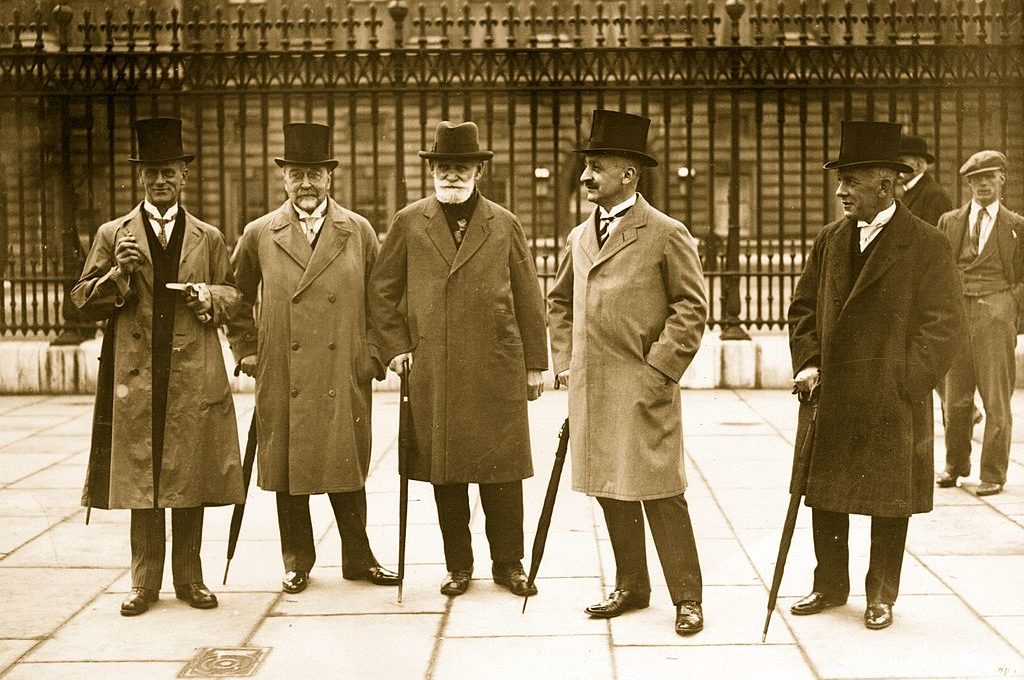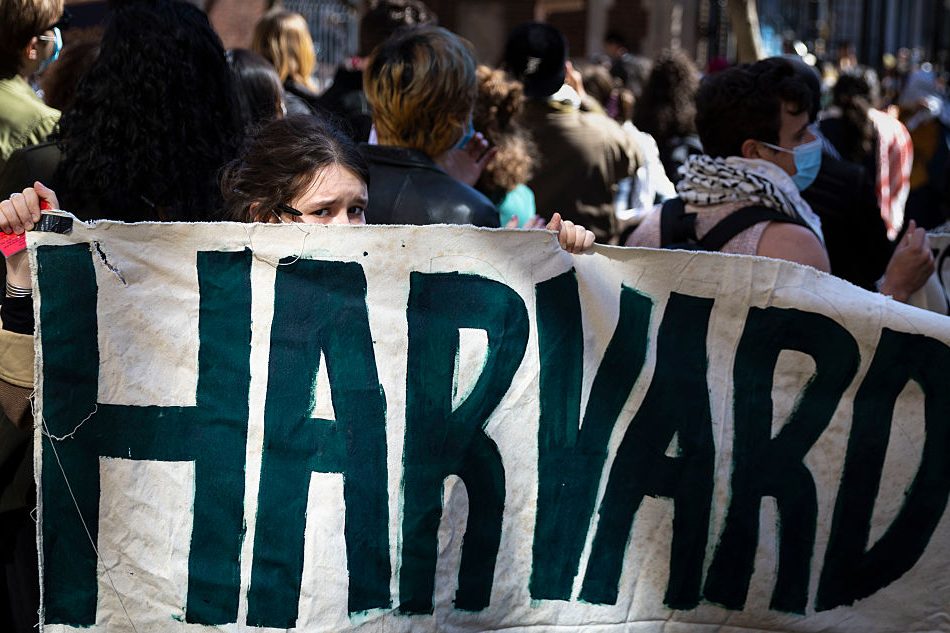Laramie, Wyoming
For a good part of the 20th century, the college professor was an object of fun in American popular culture: a long-hair in the 1920s, an egghead in the Thirties, and in the Fifties an absent-minded intellectual at best, at worst a Comsimp suspected of being a sworn agent of Comrade Stalin and the Politburo. In the revolutionary Sixties, he was publicly imagined as a hirsute hippy in jeans and sandals waving the Cuban or Chinese flag, indistinguishable from students made up like Che Guevara.
Americans have always been ambivalent about the pedagogue and his intellectual and social contribution to the Republic. In the 19th century, the nation’s rural and frontier populations respected a grade-school teacher as one of the Johnny Appleseeds of their raw civilization, equal with revivalist preachers, farm-implement salesmen, Ford agents and the Sears-Roebuck catalogue. In the first half of the 20th, the middle class scorned him as a feckless and slightly comic incompetent (‘Those who can’t do, teach’) and his professional and intellectual superior in the colleges as an extraneous effete male of the kind who gets sand kicked in his face at the beach in front of his best (or only) girl.
Even so, the stereotype was beginning to acquire a fresh aspect in the 1930s as the New Deal got under way. Roosevelt formed his Brains Trust from the Ivy League professoriat, and an increasing number of Philosophic Doctors who had earned their degrees in a wide variety of disciplines were hired into government and business enterprise as ‘experts’ with the arcane knowledge needed to protect the country from the Bolsheviks and the Chinese, design grandiose policies for implementation by idealistic politicians eager to revolutionize society and create managerial and marketing strategies that would make fortunes for CEOs and their corporations as the managerial revolution spread around the world.
Thus did the drab college ‘prof’ of old — effete, ineffective, unproductive; fit only for boring sophomores and paid accordingly — become a man of the world in high standing. Thus did he hatch out as the glittering ‘Doctor’ pulling down hundreds of thousands, and in some cases even millions, of dollars annually, where his predecessors— humble scholars all of them — had earned only a few thousands, or tens of thousands. Not since the late 19th century in Germany have the Herr Professor Doktors been held in such high intellectual and social esteem by scholars, writers and intellectuals, politicians and even the public itself.
Now, as always, language followed the flag. As late as the early Sixties the professorial elite remained satisfied with its old familiar title, refusing ‘Doctor’ as a vulgarity restricted to graduates of the teachers’ colleges and an unmistakable badge of the intellectually nouveau riche. Indeed, many of the old guard in the Ivy League and the Seven Sisters preferred the simple address of ‘Mr’, ‘Mrs’ or ‘Miss’ (‘Ms’, unheard of in those days, would have been read as a mistyped abbreviation for ‘manuscript’). Today, a student who inadvertently refers to a faculty member decorated with a PhD as something less than ‘Doctor’ is humiliated in front of the class, banished to academic reeducation camp, and has his end-of-semester grade knocked down a few letters in punishment for this act of lèse majesté.
For modern academics at the Olympian heights of higher education, ‘Dr’ is the highest possible honor that can be bestowed on a member of the human race, including President, Emperor, Sultan or even Master of the Universe. Today a PhD, bought at the price of hundreds of thousands of dollars but conferring the wisdom of the Dalai Lama, is almost a bargain. Having spent half a lifetime editing august magazines of high intellectual caliber, I myself have worked in harness with many members of the elite academic brotherhood. Some of them seemed to me to have deserved their titular honors, others less so or not at all. Ultimately, the rarified system of academic mystification becomes tedious, and hence fair game for satire and ribaldry. A few years ago, while spending several weeks as the house guest of a friend in New Mexico, my host remarked on the large number of my journalistic colleagues who introduced themselves as ‘Doctor’ over the telephone. That winter was a severe one, and we amused ourselves while housebound by blizzards and high winds conferring doctorates upon recipients we considered worthy of the honor, beginning with a Hispanic gentlemen then running for the Belen school board as ‘Héctor “Eddie” Sanchez’. Though the honorable Señor lost the election, he was known to us ever after as ‘Dr “Eddie” Sanchez’. Pleased by our cleverness, we proceeded to award doctorates to the local plumber, my friend’s masseuse and the housecat, who by further flight of fancy became ‘Dr Melissa Eddie’. It was all good fun, though none of the beneficiaries deserved the honorific any more than il Dottore Dulcamara, who in Donizetti’s opera pawns off a bottle of Bordeaux as the elisir d’amore on the lovesick country bumpkin Nemorino, deserved his.
[special_offer]
Still Americans, like the citizens of every modern nation, have learned to view academe with the reverence with which it views itself, and so they are willing to indulge the professorial mystique. For one thing, an ever larger number of them, persuaded that a substantial academic investment is necessary to ensure their offspring’s success in future life, are paying astronomical sums of money into higher education, a layout they need to justify to themselves. For another, they have observed that the chalky pedagogue in the worn tweed coat patched with leather at the elbows who buried himself in the musty learning of Plato and Aristotle and the grim New England romances of Hawthorne has been replaced by an adept of the most mysterious alchemies of our time — inaccessible to ordinary minds — that promise to transform a clanking and decrepit world into a sleek and glistening utopia. Since the early 1800s, Americans have been tempted by utopias, however shabby, as long as they think their bank accounts and firearms will be left alone; and so they are not unduly alarmed by rumors of whatever the high-paid Aladdins on university campuses are up to, supposing it to be scientific and hence beyond suspicion. A Doctor of Philosophy is, after all a Doctor, whether he (or she) professes nuclear physics, women’s studies, ethnic studies, the saxophone or fly-tying. He is a person of unquestioned respect, amounting to awe, in society. It may even come to pass one day that we shall have another president (after Dr Wilson) who was granted a PhD before his arrival at, rather than after his departure from, the White House. Small wonder, then, that the Doctor of today glories in his title, and insists upon it. His colleagues — for a start — would have him summarily bumped off if he did not. Nothing less than the honor and dignity of the Guild are at stake.

























